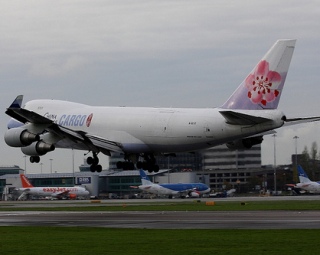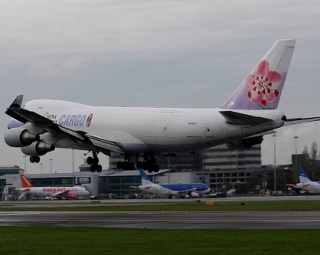 Air cargo stakeholders should work together to improve service quality, raise efficiency, and increase security so as to enhance competitiveness amid stagnant demand and unfavorable market developments, said the International Air Transport Association (IATA).
Air cargo stakeholders should work together to improve service quality, raise efficiency, and increase security so as to enhance competitiveness amid stagnant demand and unfavorable market developments, said the International Air Transport Association (IATA).
A prolonged industry slump has seen falls in yields, revenues, and market share. Since 2010, world trade has grown by 12 percent, but air cargo demand growth has been basically flat with a mere 2 percent increase.
Cargo revenues in 2013 are expected to be $59 billion, some $8 billion below the 2011 peak.
“No business or business model survives over the long term without evolving. Air cargo is being buffeted by forces for change. These include changes in the economics of just-in-time manufacturing, longer delivery lead times, innovation by alternative modes of transport, and environmental pressures,” said Tony Tyler, IATA’s director general and CEO, at a recent conference of global freight forwarders in Singapore.
“In the face of these challenges, air cargo needs to work together as an industry to improve competitiveness and protect its value proposition,” he added.
IATA said it will work with FIATA and the Global Air Cargo Advisory Group to enhance the Cargo2000, an industry initiative to embed benchmarked quality standards across the industry.
“Air cargo is a premium product. Customers valuing speed or a 100 percent cool chain need to be certain that their goods will be delivered on time and be handled appropriately,” said Tyler.
He also emphasized the need to modernize industry processes with the e-freight program. “Progress has been slower than expected. Even the e-air waybill (e-AWB) penetration—a critical enabler of e-freight—has only reached 9 percent,” Tyler noted.
On enhancing security, he noted the new directives from the European Union and the United States on managing air cargo’s security risks. Under the EU’s ACC3 regulation, for example, all carriers transporting goods into the EU from selected non-EU countries will need to have their operations validated to the security standard of their cargo supply chain from July 1, 2014.
“First, make plans to get validated as soon as possible. Second, look for areas to cooperate. There is only a limited number of validators, so it makes sense for certain markets to coordinate requests to be validated,” said Tyler. “This should maximize efficiencies and minimize costs, as well as increase the chances of the industry meeting this very tough deadline.”
He also called for a “much more equal partnership” between carriers and freight forwarders. “That is the premise of the Cargo Agency Modernization Program which we are developing in close cooperation with FIATA.”
The proposal is expected to be announced at the eighth World Cargo Symposium in Los Angeles in March 2014.
“I am a cargo optimist. If it can adapt, air freight has a competitive future – potentially a very bright one. Emerging markets around the world—Asia, Africa, Latin America, Russia and many others—offer enormous potential for growth,” said Tyler.
Photo: RHL Images





